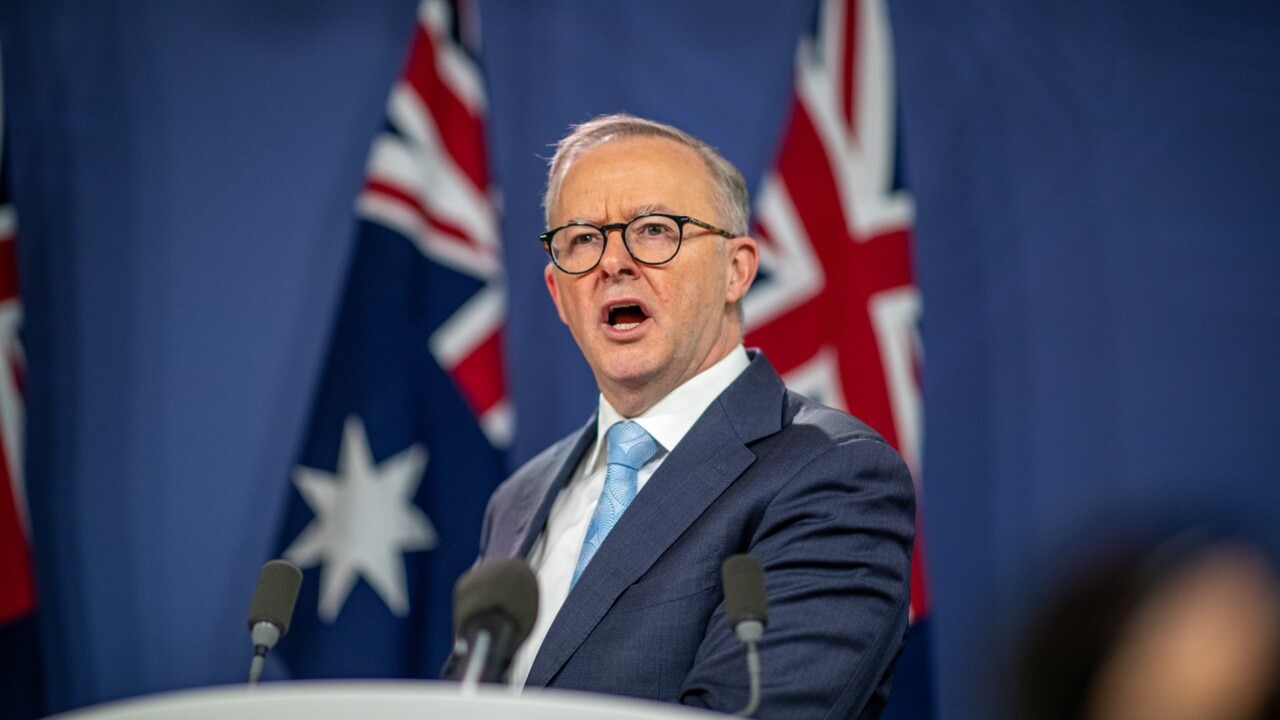Mining companies launch ad blitz selling record $63bn paid in taxes and royalties
Mining companies launch national advertising campaign linking a record $63bn paid in taxes and royalties with government funding for hospitals, schools, public transport, clean energy and infrastructure projects.

Mining companies are bankrolling a national advertising campaign that links a record $63bn in taxes and royalties paid by miners with government funding for hospitals, schools, public transport, clean energy and infrastructure projects.
Ahead of the Albanese government’s second round of industrial relations reforms, shake-up of environmental approvals and tougher rules to stop companies “greenwashing”, miners will launch an advertising blitz tagged “Australia does well when Australian minerals do well”.
The Minerals Council of Australia, whose members include BHP, Rio Tinto, Glencore and Whitehaven, will also release the latest EY royalty and company tax payments report showing the mining sector now pays one-third of all company tax paid here.
MCA chief executive Tania Constable said the $63bn in taxes and royalties paid to governments in 2021-22 – an increase of $21bn on the previous year – was the “equivalent of paying for the entire Medicare scheme or the childcare subsidy for two years”.

With a large proportion of the Albanese government’s revenue windfall linked with soaring commodity prices, helping Jim Chalmers bank the nation’s first surplus in 15 years, Ms Constable said “the minerals industry is clearly paying its fair share of tax”.
The EY report says the mining industry contributed $39bn in company tax and $24bn in royalties. “Minerals have helped propel our economy forward, boosted economic opportunity and freedom, and enabled the governments to invest in the things that really matter: families, communities and vital services like hospitals, schools, childcare, aged care and infrastructure,” Ms Constable said.
Since last year’s federal election, the MCA and some of its member companies have beefed up their campaigns and strategic teams. Former Nationals federal director Jonathan Hawkes was drafted in to a new role to lead the MCA’s campaign machine.
With resources companies spooked by last year’s energy market intervention, coal and gas price caps and $2.4bn hike in petroleum resource rent taxes, the MCA is seeking positive public sentiment ahead of looming battles with the government.

The MCA famously ran the anti-mining tax campaign that contributed to Kevin Rudd’s demise.
In Western Australia and Queensland, booming iron ore and coal royalties have helped Labor state governments deliver bumper budget surpluses.
Ms Constable said over the decade, mining companies had “contributed 21 per cent of Australia’s GDP growth (and) $295bn in company tax and in royalties underpinning Australian government revenue year in, year out”.
“The record tax and royalty payments come off the back of $389bn of capital investments the industry made since the start of the mining boom,” she said.
“Australia’s vulnerability to competition for this investment from resources-rich economies … will only grow as they seek to seize the opportunity to supply the minerals and metals needed (for) global net zero emissions.
“Investment should be placed at the centre of government’s policymaking to attract a significant proportion of this investment that will create tens of thousands of new regional jobs and business growth.”
Ms Constable said “workplace relations, tax, environment, climate change and energy policies that impose unexpected costs on the mining industry threaten the capital investment that underpins its contribution to the economy and global efforts to decarbonise”.
Strong commodity prices and volumes produced have driven the surge in company taxes, which are levied on profits.








To join the conversation, please log in. Don't have an account? Register
Join the conversation, you are commenting as Logout